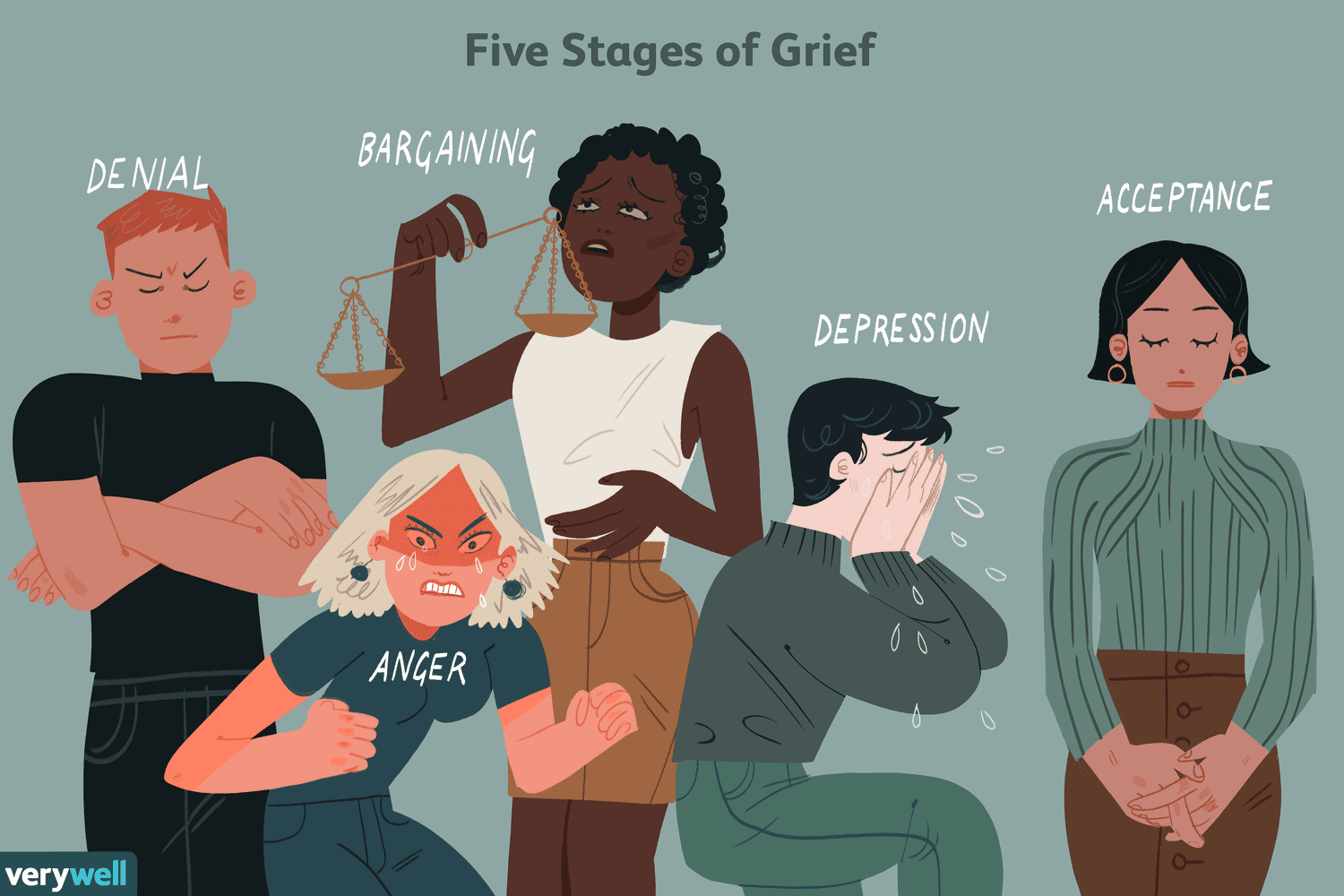Grief has been colonised and we are told to contain it, to express it in a certain way. But grief does not have to be polite or quiet.
Experiencing grief is a normal and natural part of life. While it can make you feel ill, it is not an illness. The pain won't last forever, although there may be times when it seems endless. The way we grieve is unique to each of us, and there's no one way to do it.
Grief is overwhelming.
It is detrimental to our mental and physical health. As a result of feeling threatened, our minds and bodies are constantly impacted by the stress response. This results in adrenaline and cortisol being released, affecting sleep, appetite, and reducing efficiency.
Grief can be isolating.
Regardless of the loss that is causing you emotional suffering, you are abjectly alone in how it affects you. The way you feel will never be the same as how someone else feels, even if they have suffered a loss that is very similar to yours or the same.
Grief is universal.
Everyone will experience grief at least once in a lifetime. It could result from a loved one's death, a loss of job, the end of a relationship, or any other transition that upends your way of life.
The waves of grief ebb and flow but when the powerful waves hit, it can take your breath away and knock you down over and over again. At this very moment, you need to be gentle with your heart and be patient with yourself. Gradually you will learn to ride the waves of grief and if you keep swimming you will always make it back to shore. Even when it’s hard!
Grief often brings along many feelings that may be difficult or confusing. Some of the most common reactions are:
Guilt or remorse
Irritability, anger or frustration
Numbness or feeling 'not here'
Sadness or depression
Denial, shock or disbelief
Confusion & feeling lost
If you're experiencing grief, of any kind, don't forget the basics: Sleep, nutrition, rest, hydration, exercise, and talking to people. Both the body and the mind need care.
While grieving is personal, there are some commonalities in the stages and order of feelings experienced.
Elisabeth Kübler-Ross, Swiss-American psychiatrist, outlined five typical stages of grief in 1969. These stages are referred to as DABDA. They include:
DENIAL: The world is meaningless and overwhelming at this point. We're in shock and denial. We feel numb. Each day, we try to find a way to just get by. Denial and shock enable us to adapt and enable survival. We can pace our grief by denying our feelings of loss. Unknowingly, the healing process starts as soon as you acknowledge the reality and begin to reflect on it. The denial wanes off as you get stronger. But as you go along, all the emotions you had been denying rise to the fore.
ANGER: Although there are many other emotions beneath anger, it is the one we are most accustomed to suppressing. Grief initially resembles being cut off from everything, like being lost at sea. Then you get angry at someone. Usually, we are more adept at controlling our anger than we are at actually experiencing it. Anger is just one more sign of how passionately you love someone.
BARGAINING: When we begin to bargain, we are beginning to make agreements with ourselves or, perhaps with God. We want to think that by doing certain things, we will feel better. We may bargain with the suffering. We continue to live in the past while striving to reckon with the pain. Frequently, people assume that the stages last a few weeks or months. They fail to acknowledge that the stages are reactions to emotions that can linger for several minutes or even hours as we switch between them. We don't move linearly through each stage before entering and leaving it.
DEPRESSION: Grief enters our lives on a deeper level than we ever imagined when empty feelings start to appear. It seems as though this depressive phase will never end. When we are living in reality and realise the person or situation is gone or over, it may be a response to the emptiness we feel. You might withdraw from life at this point, feel numb, be in a fog, and not want to leave bed. You might feel that the world is too big and overwhelming to handle. You might feel hopeless and not want to talk to or be around other people. Depression may appear to be the inescapable conclusion to any setback. You can consult a mental health professional if you feel stuck in this phase of grief or are unable to advance past it. You can get through this period of coping with the aid of a therapist.
ACCEPTANCE: This stage may mark the beginning of the stabilisation of your emotions. It's time to return to reality. We are in a period of adjustment and readjustment. Occasionally, there are good days, bad days, and then there are good days again. As time passes, you may lift out of your fog, make new relationships, and engage with friends again. In your new reality, you grow, change, and evolve.
Grief looks different for everyone, but the silver lining is that you aren’t alone in the experience of it. Whatever stage of the grieving process you're in, we are around you through your tough times.
You do not have to go through grief, loss, or trauma alone if you feel overshadowed by it. Using the Get Help feature on Solh Wellness App, you can receive culturally-sensitive support and guidance during your grieving process. Sometimes the experience of those who have walked before us can help us see a glimmer of hope.



